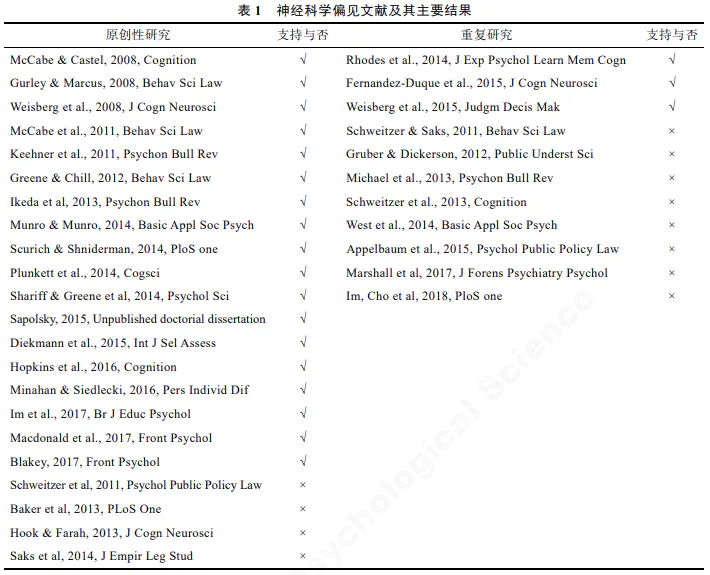 Image credit: Fig1
Image credit: Fig1
摘要
Behavioral and neuroscientific methods have uniquely contributed to our understanding of human mind and behavior. The advance in neuroscience and its potential implications (e.g., in legal systems) have attracted attention from both academia and society. However, researchers found that, when providing statements supported by either neuroscientific or behavioral/psychophysiological results, even if these neuroscientific results were logically irrelevant to the statements, participants still considered statements with neuroscientific results as more trustworthy. This phenomenon was termed as neuroscience bias. By systematically reviewing empirical studies on neuroscience bias, we revealed that:(1) the reproducibility of neuroscience bias was debated, but the effect exists; (2) neuroscience bias could be attributed to people’s preference for the reductionism and psychological essentialism. Neuroscience bias is one of many biases people may have when interpreting scientific results; future studies should further explore the psychological mechanisms of these biases and thereby provide guidelines for correctly interpreting and using scientific results.